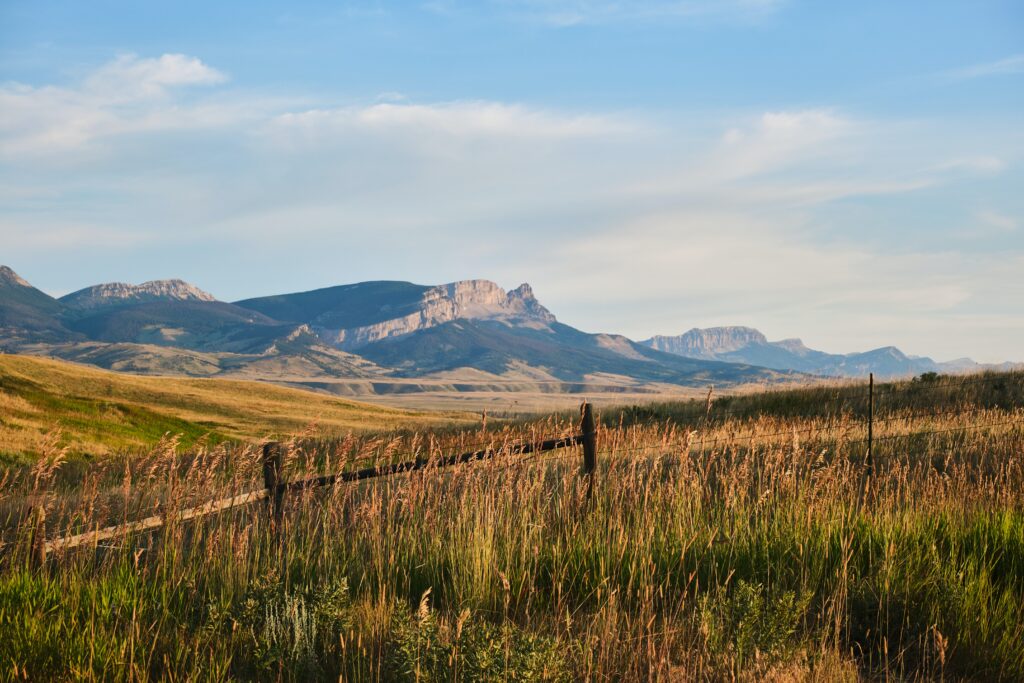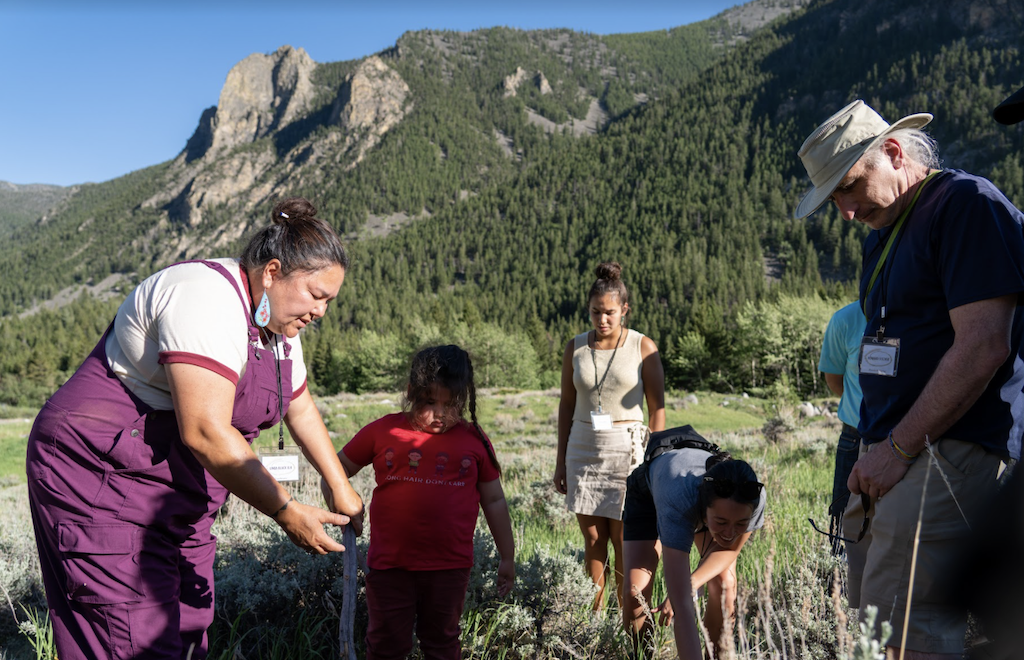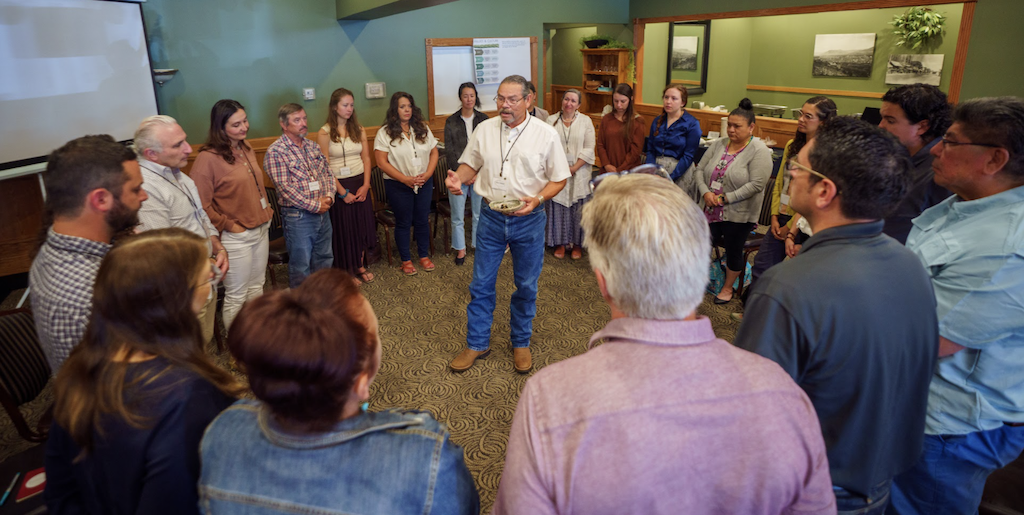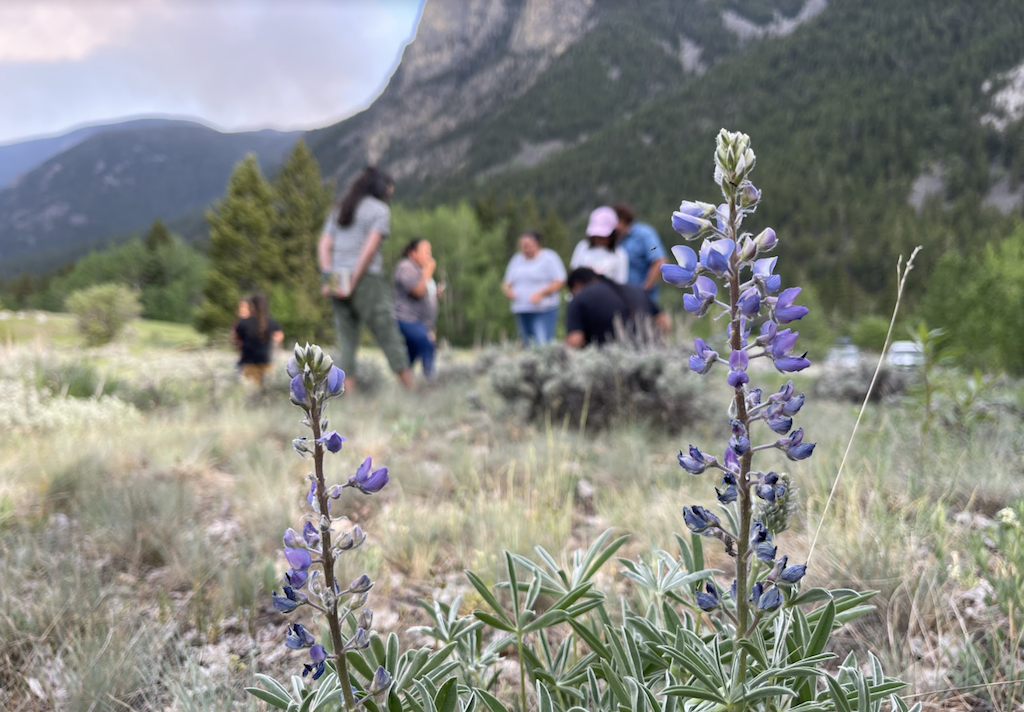Investing to Amplify Indigenous Innovation
by Olivia Tabah, with contributions from Doug Spencer

August 18, 2021
In early June 2021, I traveled West for my first work outing since March 2020 to meet some colleagues and GRR investors – Jessie Tang, Eric Jacobsen, Doug Spencer, and Howard and Randee Fischer – for a gathering with the leaders of the Mountain | Plains Regional Native Community Development Financial Institutions (CDFI) Coalition. A common curiosity about the wisdom, generosity, and plight of Indigenous peoples in our country drew us to the small town of Red Lodge, Montana, which was – somewhat symbolically – entrapped by wildfire smoke and teeming with visitors during an unseasonably warm week for early June. In what can, in hindsight, be remembered as a signal of the urgency around the climate crisis, the fire reared its head in the background of our gathering, nearly threatening our evacuation, while we shared stories, built relationships, and established trust with our counterparts from the Native CDFI Coalition. We felt immense humility and privilege as we followed their lead to learn more about the challenges and opportunities imbuing their respective communities.
The Mountain | Plain Regional Native CDFI Coalition is a thoughtful, compassionate, and forward-thinking group of leaders from WY, MT, and SD. Each of these regional CDFIs serves a Native tribe with a wide range of financial products, including agricultural loans, mortgages, consumer credit, small business lending, and technical assistance. CDFIs play an integral role in supplementing the flow of capital from which Natives are often denied by the conventional banking system.
Educated with a modest appreciation for the undervalued opportunity to invest in and elevate Indian Country, the GRR team set out to expand our minds and build authentic connections to better understand the needs of these communities and how we might partner to bridge our expertise with theirs. We spent our time together uncovering our shared humanity, value systems, and belief that purpose-driven capital can catalyze systemic change. During this trip, we were graciously invited to partake in some traditional Indigenous practices:
- A plant walk, where we foraged for plants to get grounded on the landscape and better understand the medicinal and nutritional properties of all that grows right beneath our feet. Foraging has become a cultural mainstay passed down from generation to generation that cultivates a balanced connection between human and planetary health.
- Sagebrush smudging and prayer to honor the present moment, the space, and the collective energy and power of the group.
- A traditional Indigenous dinner, which incorporated foraged ingredients and hunted Buffalo meat, lovingly prepared by Native botanists.
- An exchange of gifts, which is a signal of reciprocity and gratitude for the receipt of wisdom, a meal, hospitality, or something else of value. Gifting dismantles power dynamics in relationship by honoring individual contributions of all sizes.

We also engaged in difficult and uncomfortable conversations around race, equity, power, reparations, and financial structures. We learned that relationships are foundational to business engagements, while the transactional and individualistic nature of capitalism is antithetical to the values system of Indian entrepreneurs. We learned that family – both blood and chosen relatives – come before everything. And we learned that a genuine respect for the land can empower humans to live in harmony with nature rather than in conflict.
The lessons and traditions shared impressed upon us the values system by which Natives are guided in their everyday lives. Specifically, I admired their dogmatic commitment to family, relationships, authenticity, integrity, humor, and stewardship of the Earth. Due to ineffective tribal structures and a complex and dehumanizing legacy of relations with the federal government, Native reservations are amongst the most invisible and overlooked places of need in our country. With the highest poverty rates in the US and the lowest rates of employment, most tribes struggle to meet the most basic needs of their people, while extractive capitalist systems preclude the flow of resources needed to overcome these challenges. Indigenous institutions receive less than 0.5% of all philanthropic funding, and presumably even less within impact investing.
Despite centuries of attempted erasure, Natives have leveraged their ultimate superpower – resilience – to preserve a rich cultural history rooted in community wellbeing and a reverence for the natural world. Natives have always led environmental stewardship, taking only what they need, regenerating what they took, and leaving enough for those that come after. This culture of sustainability, stewardship, and collective prosperity resonated deeply with our team and aligns squarely with GRR’s focus on whole-stakeholder capitalism. It also conflicts with the individualistic proclivities that define colonial capitalism and influence dominant culture. It was moving and disheartening to grapple with the age-old disempowerment of communities who have both the greatest needs and the most to teach as we seek to heal from our darkest social and environmental ailments.
Trust is currency that is earned and holds value in Indian Country; and building trust takes time. For a community that has been excluded by extractive systems for centuries, we were humbled and honored that this group so graciously opened their space to us investors to engage and to listen. As we embark on this work, we are mindful of the legacy power imbalances inherent to investor/investee engagements; we are endeavoring to dismantle such dynamics by co-creating solutions alongside our partners and rethinking the conventional definitions of value that got us to this place.

Steeped in authentic Native traditions, lessons, and practices, the group used our final morning together to ideate. Leveraging our respective domains of expertise and using a human-centered design approach, we were tasked to answer the following question: What barriers hinder the flow of capital into Native CDFIs, ensuring that capital amplifies strength, unifies action, and sustains generations while forwarding values and culture? How might we overcome these barriers?
A few of the barriers we identified included: 1) lack of cultural proficiency amongst funders 2) lack knowledge of conditions and opportunities in Indian Country; 3) implicit bias; 4) the transactional nature of business and capitalism; 5) othering; 6) the complexity of tribal systems; 7) the definition of “value” and “return”; 8) individualism versus collectivism; 9) the rigidity and structure of financial instruments and underwriting; 10) investment horizon and tension of scale vs impact; 11) the white savior complex resulting in prescriptive aid to Natives; and 12) a lack of relationship and proximity to Native issues.
As we discussed the challenges precluding the flow of capital, we came away with dimensions of progress against which we can assess our work moving forward:
- Amplifying the stories of the Coalition and the important work they’re doing.
- Building partnership and establishing trust
- Approaching Indian Country with an asset-based lens vs. a deficit-based lens.
- Challenging conventional definitions and measurements of value and return – what holds value in Indian Country is somewhat at odds with our economic system and the wellbeing of the whole versus the individual.
To date, there has been a dearth of available, flexible private capital willing to engage on their terms to the needs of their communities. At the very least, we believe GRR could play a role in providing intellectual and creative capital to structure investment opportunities that blend our appetite for systems-change and financial return.
While we remain early in our collaborative journey, the GRR team is humbled, moved, and inspired by our time spent with the Bar K Management Team and The Native CDFI Coalition. We welcome participation from our Partners and the broader GRR community as we continue our exploration of opportunities for partnership and investment in Indian Country.




